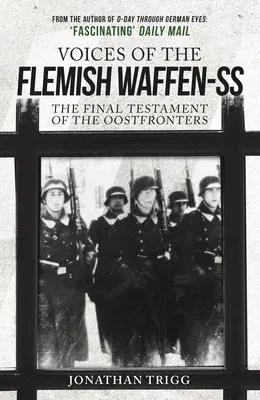At the very beginning of the Second World War Germany invaded and
occupied Belgium. Yet less than a year later some of Belgium's citizens
volunteered to join the Waffen-SS and go and fight on the newly formed
Eastern Front against Stalin's Soviet Union. By the end of the war
thousands had volunteered. Casualties were high, but there were
survivors and they returned home, often to face condemnation and
retribution. This book is about the war they fought in their own words,
the very few who remain, the last testament before they are all gone.
The motivations of these men were complex: the Flemings have their own
culture and identity and some longed for a state independent of
French-speaking Belgium. Some volunteered through a deep hatred of
communism, often fuelled by their Catholic faith. Some, of course, were
simply persuaded by Hitler's vision of a new world order. The Flemish
Waffen-SS, in various configurations, saw action on the Eastern Front
from 1941 onwards ‒ at the siege of Leningrad, in the Ukraine, then
retreating into Germany itself with the remnants surrendering to the
Allies as the Reich lay in ruins. This was hard fighting: and for those
men who had chosen this path, the war was not over. Some stayed in
Germany, some returned home, perhaps to trial as war criminals. The
interviews and images gathered by Jonathan Trigg are vital historical
documents.

